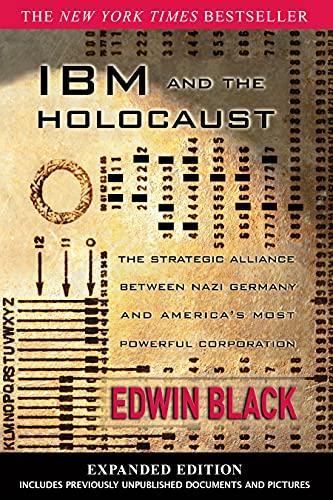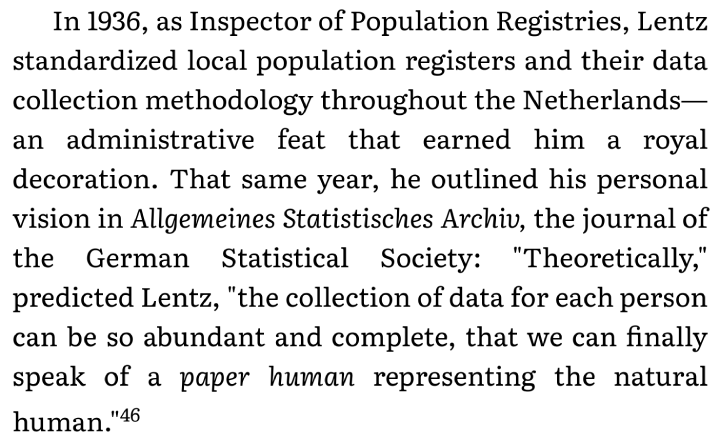Book Review: IBM and the Holocaust

Published to extraordinary praise, this provocative international bestseller details the story of IBM's strategic alliance with Nazi Germany. IBM and the Holocaust provides a chilling investigation into corporate complicity, and the atrocities witnessed raise startling questions that throw IBM's wartime ethics into serious doubt. Edwin Black's monumental research exposes how IBM and its subsidiaries helped create enabling technologies for the Nazis, step-by-step, from the identification and cataloguing programs of the 1930s to the selections of the 1940s.
This is a hard book to read. It is beautifully written, meticulously sourced and footnoted, follows a compelling narrative, and - every few pages - punches you right in the guts.


Partly it is the banality of evil which gets me. Technology - we laughingly tell ourselves - is neutral. A faster computer can be used to calculate missile trajectories or moon landings. Sure. But when someone asks you to build a machine specifically to identify one ethnicity so that they can be eradicated - that's not neutral.
IBM were fully aware of what was going on. And their meme-loving leader, Thomas Watson, was so in thrall to hyper-capitalism that he deliberately aligned the company with the murderous regime. IBM rarely acknowledges the part it - and Watson - played in the Nazi's holocaust. Indeed, IBM's flagship artificial intelligence is named "Watson" in honour of their corrupt former leader.
There are three intertwining stories here. The first is the tale of how IBM's technology became a monopoly - and then a monster. Mixed in with that is how IBM deliberately structured its corporate affairs to avoid scrutiny. Finally, there's the meta-story of how technology rampages through the world and the evil uses to which it can be put.
The corporate story is - almost by necessity - a bit dull. Do you really care how many shares each sub-brand of IBM had? Or what was said at a meeting to decide voting rights? I didn't - but it all goes towards building an inarguable case that IBM knew. They knew and approved of what their technology was being used for.
Large sections of the book are distressing. There is a constant drumbeat of torture and death. It is unpleasant to read, and sickeningly horrific. And all of it is backed up with meticulous research and copious footnotes. I had to step away from the book a few times as the intensity was just too much.
Finally, perhaps without being deliberate, the book talks to the modern technologist about the work they're doing right now. Are you working on Digital Twins, perhaps? A Nazi collaborator was using IBM technology to do that during the war.

What technology are you developing today? Are you, for example, making the trains run on time? If so, that technology might be used to deliver people to their death more efficiently. Could you design it in such a way to prevent genocide? Would you collaborate with those who wanted to use your tech for evil?
This book is a must-read for anyone working on technology. And for anyone who believes that technology is neutral. And, dare I say it, for anyone who works for or does business with IBM.
| Verdict |
|---|
- Buy the eBook on Amazon Kindle
- Author's homepage
- Publisher's details
- Borrow from your local library
- ISBN: 9780914153283
 All the books I read this year
All the books I read this year
I read it when it first came out. Very shocking and powerful book
@Edent 🤯
Something for us all to think about.. Example, Stuart Russell's upcoming Reith lecture on AI and warfare bbc.co.uk/programmes/art…